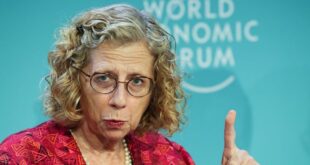BELGRADE (Reuters) – A top Kosovo Serb politician, Milan Radoicic, on Friday admitted to taking part in a gun battle with police in Serb-dominated northern Kosovo that killed four people.
Kosovo police on Sunday fought around 30 heavily armed Serbs who had barricaded themselves into the Serbian Orthodox monastery in the village of Banjska. Three attackers and a Kosovo Albanian police officer were killed.
Some 50,000 Serbs who live in north Kosovo do not recognise Pristina’s institutions and see Belgrade as their capital. They have often clashed with Kosovo police and international peacekeepers, but Sunday’s violence was the worst in years.
In a letter sent to Reuters by his lawyer, Radoicic, who is wanted in Kosovo and lives in neighbouring Serbia, said he had come to Kosovo “to encourage Serb people to resist (Prime Minister Albin) Kurti’s terrorist regime”.
“I personally prepared logistics for the defence of Serb people,” Radoicic said, adding that he had not informed Serbian authorities about his activities or received help from them.
Kosovo authorities had accused Serbia of providing financial and practical support for the operation, which Belgrade denied.
Radoicic said the Kosovo policeman had been killed accidentally.
Afterwards, he said that “fierce crossfire started on both sides in which our three friends – heroes – lost their lives”.
Kosovo prosecutors said they had raided five locations connected to Radoicic on Friday, and requested the seizure of a villa on Lake Ujman. Two Mercedes vehicles, one boat and 4.8 kg (10.6 lb) of silver were confiscated.
Radoicic, vice-president of the Serb List, the biggest political group representing Serbs in Kosovo, is wanted on suspicion of involvement in the killing of moderate Kosovo Serb leader Oliver Ivanovic in 2018. He is also under U.S. sanctions for suspected links to organised crime.
The battle revived international concern for the stability of Kosovo, which declared independence in 2008, nearly a decade after NATO bombing ousted Serbian security forces from what was then a predominantly Albanian province of Serbia.
NATO, which still has 4,500 troops in Kosovo, said on Friday it had “authorised additional forces to address the current situation”.
(Reporting by Ivana Sekularac; Additional reporting by Fatos Bytyci in Pristina; Editing by Kevin Liffey)
 BeritaKini.biz Berita Viral Terkini di Malaysia
BeritaKini.biz Berita Viral Terkini di Malaysia





